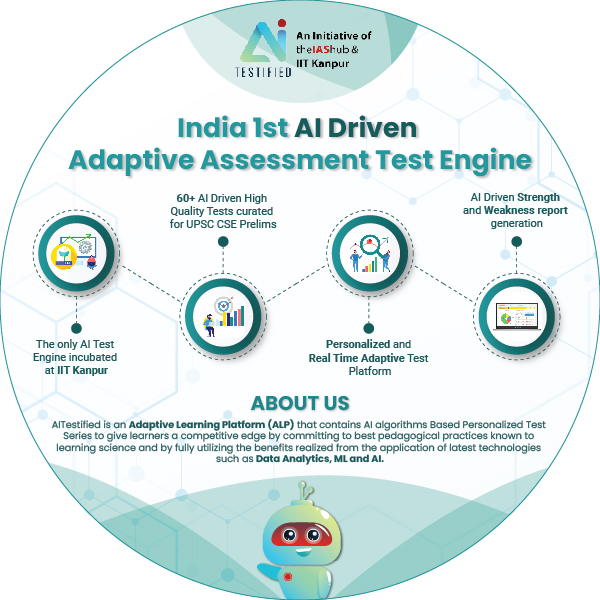Q. A rise in ground water pollution is a cause of concern for India. In this context, examine the factors contributing to increasing water pollution and suggest suitable measures to check it. (Answer in 250 words).
05 Oct, 2022
GS III
Daily Answer Writing 2022-23 ( Upgrade)
Modal Answer
Modal Answer
According to the Central Groundwater Board, India's groundwater is highly polluted with about 270 districts having high concentration of fluoride, arsenic and uranium.
The factors contributing to Ground Water pollution
- Natural
- Geological formations: Arsenic found in groundwater in the Gangetic basin.
- Anaerobic conditions: decomposition of organic matter result in the release of arsenic.
- Precipitation: increased concentration of minerals at a particular location.
- Anthropogenic:
- Urbanisation:
- Poor Sanitation and Sewage disposal.
- Improper landfill practices –g. open waste lying Ghazipur in Delhi.
- Overextraction: of groundwater from coastal aquifers E.g. seawater intrusion in Kachchh.
- Agriculture
- Indiscriminate Fertilizer & pesticide use: leaching of nitrate & toxins.
- Industrial:
- Huge Waste: Effluents from industries seep from the soil and pollute the groundwater.
- Mining: petroleum leakage, chemical such as arsenic, sulphuric acid and mercury seepage etc.
Implication of Ground Water Pollution
- Poor drinking water quality & loss of water supply
- Degraded surface water systems
- Potential health problems: Cholera, Hepatitis, Dysentery, arsenicosis, etc.
- Impact on food security: 80% GW used in agriculture
- Loss of Biodiversity
Issues in Tackling Groundwater Contamination
- Inadequacy of data on groundwater resources – This has adversely impacted efficient GW management.
- Laxed regulations: absence of any stringent norms on water quality testing.
- Poor groundwater quality monitoring: network of monitoring stations is not dense enough.
- Lack of Powers with CPCB & SPCB: lack legal teeth and administrative apparatus to penalize polluters.
- High cleanup costs: Expensive sophisticated technology and inadequacy of financial resources.
- Social reality: Any regulatory interventions to ban pumping would mean depriving agri communities of their traditional rights.
Measures to be undertaken:
Key Govt Initiatives
National water awards to incentivise water
- Jal Shakti Abhiyan (JSA)
- National Water Policy (2012)
- Aquifer mapping and management programme
- Establish water quality standards: for water bodies as recommended by CAG.
- Strict enforcement of pollution control laws: to avoid future contamination.
- Localised testing: For eg. Swajal Water Testing Training in Barpeta District (Assam) to address Arsenic contamination.
- Treatment of wastewater: It can be a safe source for groundwater recharge.
- Go native: Use of native plants in landscape to execute phytoremediation –g. Indian mustard.
- Demineralization: through the use of RO, which can eradicate all hazardous impurities.
- Incentivise and localise replenishment: recharging ground water source through local structures, E.g. Johad
- Community participation: groundwater research project to be developed & implemented with community participation.
- Water conservation fee: to be applicable on excessive extraction.
While industrial and household leachate must be controlled, there is a need to re-learn traditional agri practices & unlearn toxic agri practices, through a comprehensive national groundwater governance framework.
Please login to upload your copy.
Uploaded Copies
No copies found.
